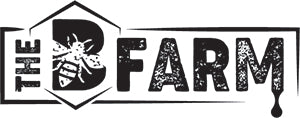Many of us begin hunkering down in our warm homes, stocking up on cozy blankets and hot cocoa when winter weather arrives. Various mammal and insect species also start to hibernate or travel South, but what about our buzzy little friends, the bees? Bees are vital to our ecosystem, performing the critical task of pollination. Yet, what happens to bees during the winter months? Let’s examine what happens to bees when temperatures drop, and snow covers the ground.
Where Do Bees Go During Winter?
As the days shorten and temperatures drop, honeybees prepare for the winter by forming a winter cluster inside the hive. The worker bees gather around the queen and vibrate their wings to generate heat. This process creates a tighter formation, causing them to cozy up together to keep warm. The bees take turns moving in and out of formation in unison to ensure that everyone gets a turn to stay warm.
How Do Bees Get Food During Winter?
Flowers are not typically available for bees to feed on during winter. Instead of going out for food, bees gorge on stored summer honey. The bee clusters move together to access their stores and slowly consume the honey over time; the honey typically lasts until spring. However, bees will starve if their stored honey runs out.
A beekeeper must monitor their hives throughout the winter months to ensure the bees have enough food. The beekeeper can supplement the bees with sugar syrup to help them through winter if they’re running low on honey.
What Happens to Bees as Winter Ends?
At winter’s end, when temperatures perk up again and the snow melts, the entire hive buzzes with excitement. The queen lays her eggs again, and the worker bees search for flowers and nectar. They use the newly collected pollen for feeding new broods of bees, thus beginning the pollination process once again.
What Can We Do To Help the Bees During Winter?
While bees are incredibly resilient creatures, they face many challenges, including harsh winter weather and habitat loss. We can help bees in many ways during the winter months, such as providing them with food (such as sugar syrup) and shelter (such as bee hotels). We can also plant bee-friendly flowers that bloom during winter, such as crocus or snowdrops.
Bees play a vital role in our ecosystem, and it’s essential to understand what happens to them during the winter months. Bees can survive the colder months by creating a winter cluster and consuming stored honey. We can ensure bees thrive throughout the year by learning what happens to our buzzy friends.
Do you have the right tools to start your next beekeeping season? Don’t buzz off—The B Farm offers various nucs for every beekeeping season. Ensure your bees are ready for winter by ordering a fresh 6 frame nuc box, a box built for the newcomer or the experienced getting back into the swing of things. We are stoked to get you ready for a fun new season of beekeeping!
